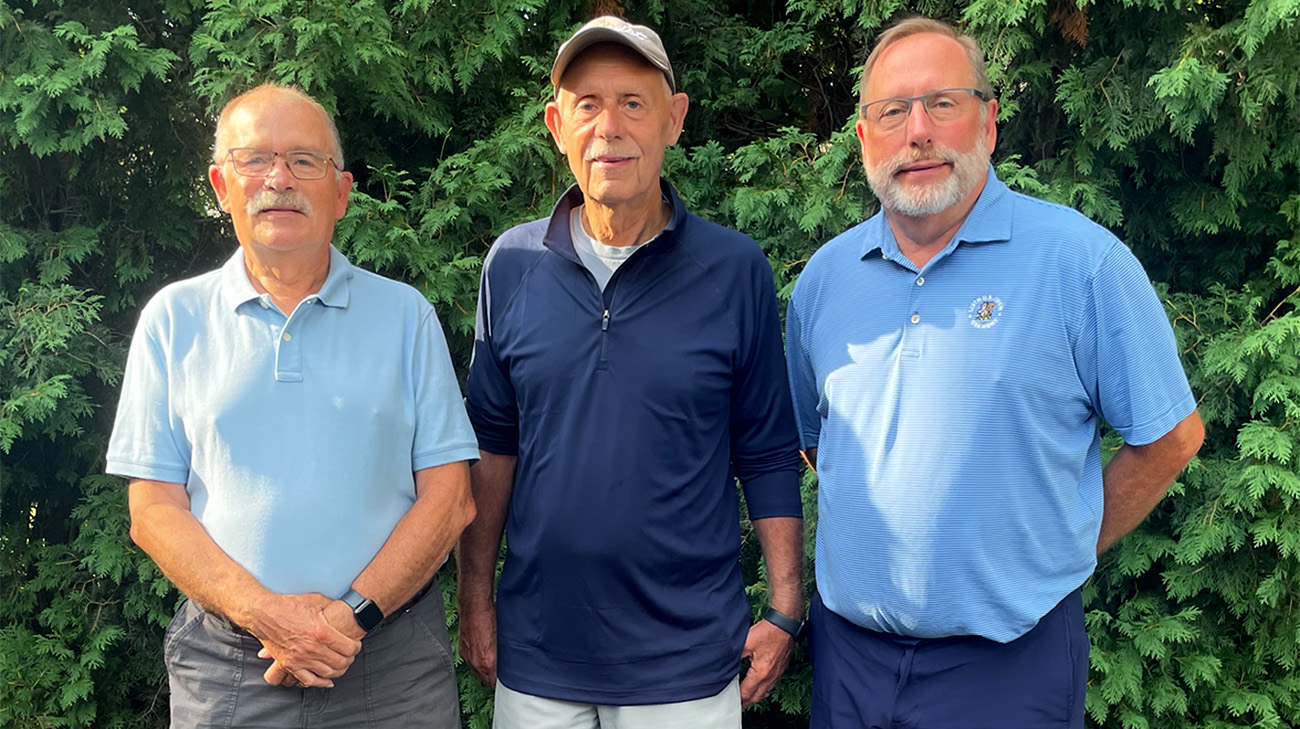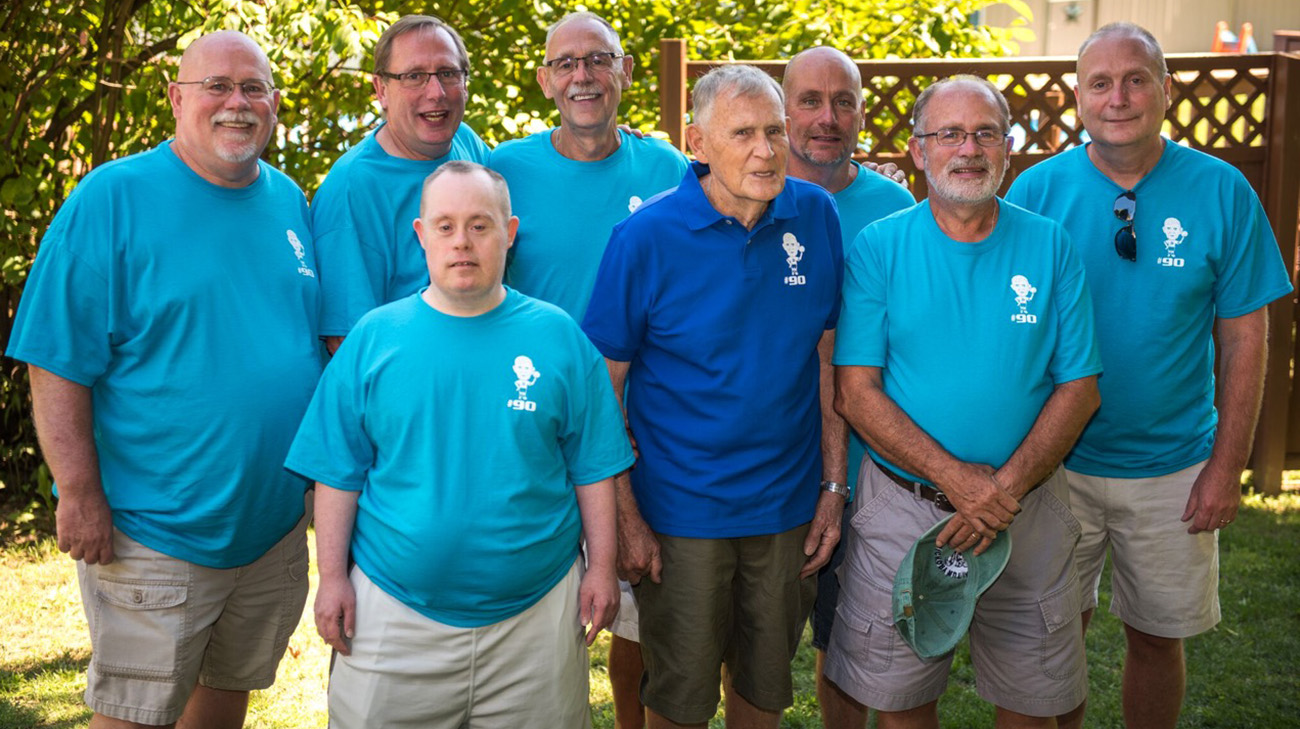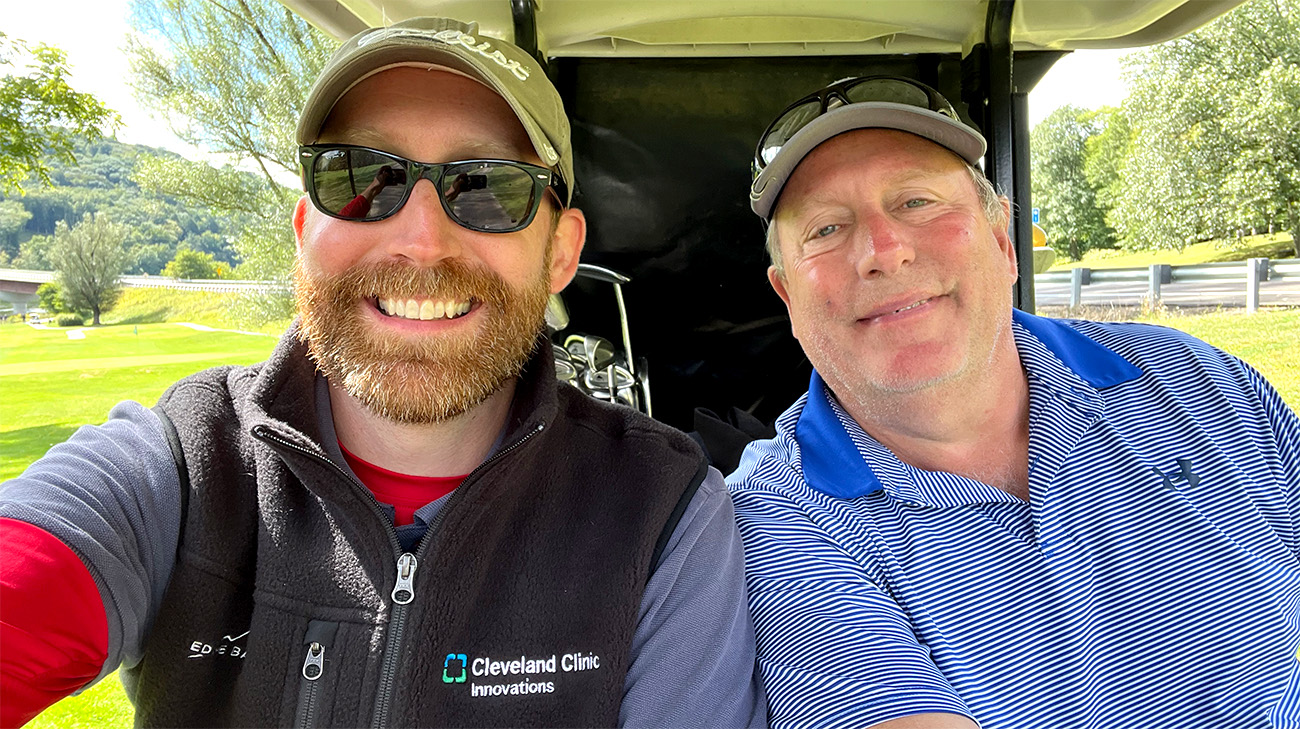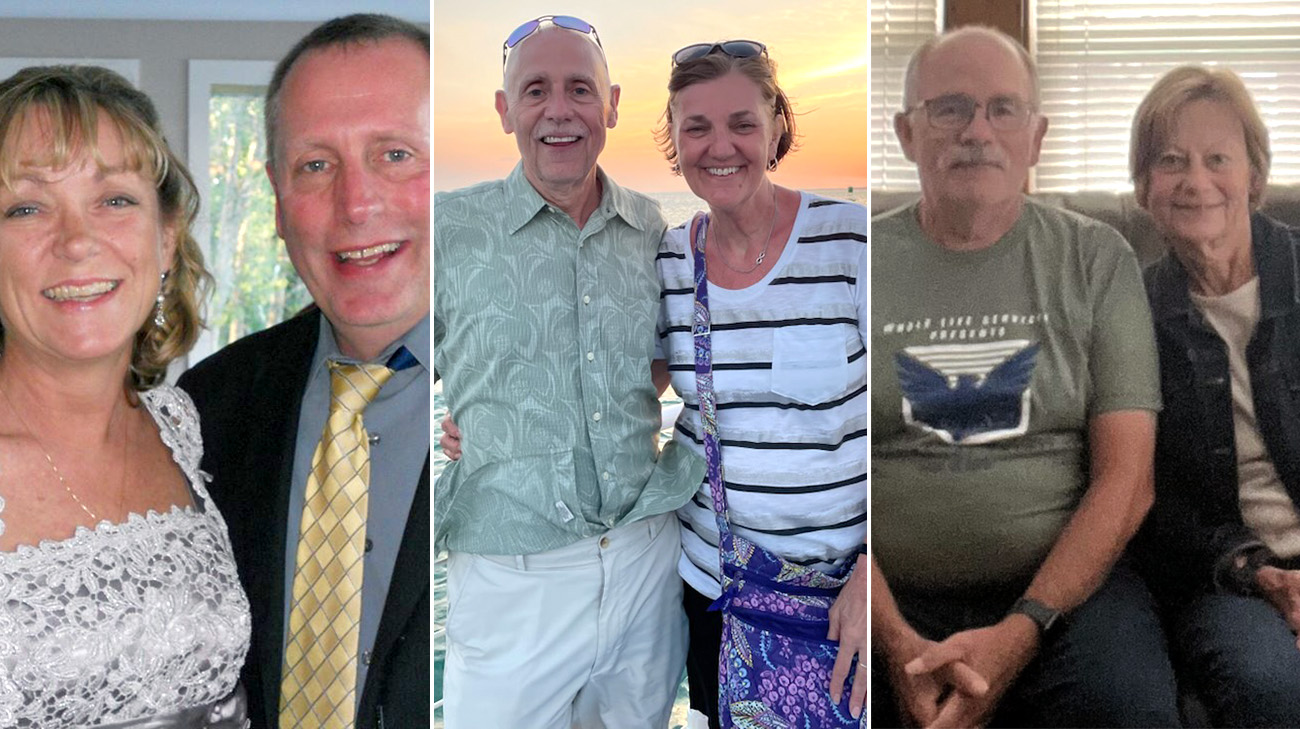
From camping trips to rounds of golf, brothers Mark, Tim and Dan Gill are a close-knit group of siblings who all live near each other in Mercer County, Pennsylvania. Along with their shared hobbies and strong family bond, the brothers have each faced a prostate cancer diagnosis.
“With a family history of prostate cancer, we were all undergoing regular screenings for it. My oldest brother, Dan, was the first one diagnosed, then my second-oldest brother, Tim,” says Mark, 63, of Sharpsville, Pennsylvania, whose late father had prostate cancer.
Prostate cancer begins in the prostate gland, a part of the male reproductive system, and it’s common – with about 13 out of every 100 men going on to develop prostate cancer at some point in their life. For men like Mark with a first-degree relative who has the disease, the risk is even higher. While most start screening for prostate cancer at age 55, it can begin sooner with certain risk factors.

Mark, Tim and Dan with their other brothers and late father. (Courtesy: Mark Gill)
“Since I brought up my family history of prostate cancer to my doctor, I started getting my PSA levels tested earlier,” says Mark.
A PSA, or a prostate-specific antigen test, is a blood test that helps healthcare providers diagnose and manage prostate cancer. While high PSA levels don’t mean you have prostate cancer, you’re at a higher risk, and additional testing and observation may be needed to make sure.
After Mark’s PSA levels started rising, his son, who was a resident at Cleveland Clinic at the time, recommended he come to the healthcare system for further testing. It’s also where Mark’s brothers Dan and Tim went as well.
“They all had a hand in helping me grow up and supported me while I pursued my career path, so it was an opportunity for me to step up and do something to help them,” says urologic surgeon Bradley Gill, MD.
Mark says, “We were able to bounce questions off of Brad, and he gave us insight to help make the decisions we did.”
At Cleveland Clinic, Mark underwent a fusion-guided prostate biopsy that combines MRI and ultrasound images to precisely target and take samples of suspicious areas in the prostate. Mark was ultimately diagnosed with prostate cancer at 55 years old. Following his diagnosis, Mark underwent active surveillance. Best for early, low-risk cancer with no symptoms, active surveillance involves undergoing regular check-ups and tests to track cancer growth. Eventually, all three of the brothers got surgery to treat their cancer – with Mark and Tim getting their operations the same day in 2017.

Dr. Bradley Gill with his son Mark while golfing. (Courtesy: Mark Gill)
“I went in first, and then Tim came in after. Following our surgeries, it turned into a bit of a friendly competition to see who could get out of bed or walk first. It was comforting having him there and going through the same experience as me,” says Mark.
All three brothers underwent a radical prostatectomy, where a surgeon removes the entire prostate gland along with some surrounding tissue to treat the cancer. Mark, Tim and Dan all say they recovered quickly after their surgeries. Dr. Gill adds treatment options for prostate cancer continue to improve as well.
“Some of the most recent innovations include single-port robotic surgery, which allows us to make one small incision and remove the prostate through the bladder – rather than having to go through the abdominal cavity with multiple incisions. There’s also focal therapy, where we can target and destroy just the cancerous parts of the prostate. We have ways to tailor prostate cancer treatment not only to the patient’s disease state, but also to their priorities and what they feel is important,” says Dr. Gill, who adds each case of prostate cancer is different and not everyone is a candidate for these types of treatment approaches.
Cleveland Clinic conducts an annual MENtion It campaign to raise awareness about health issues specific to men, like prostate cancer. It aims to encourage men to talk about their health and make it a priority. The brothers, now cancer-free, hope sharing their story will help others start a conversation with their doctor about their family health history and the screenings they may need. Dr. Gill understands this firsthand – not only as an expert in the field but also as someone with a family history of prostate cancer.

The close-knit brothers now look forward to creating new memories with their families and having plenty more camping and golf trips. (Courtesy: Mark Gill)
“When caught early with appropriate screening, prostate cancer is highly treatable. As men we need to be more proactive and comfortable talking about our health. Simply asking a friend or loved one if they’ve gotten their prostate cancer screening could potentially save their life,” says Dr. Gill.
Mark adds, “Stay on top of your annual physicals and bring up your family health history to your doctor. Don’t brush off any symptoms either – listen to your body when it’s telling you something might be wrong.”
Related Institutes: Glickman Urological & Kidney Institute

